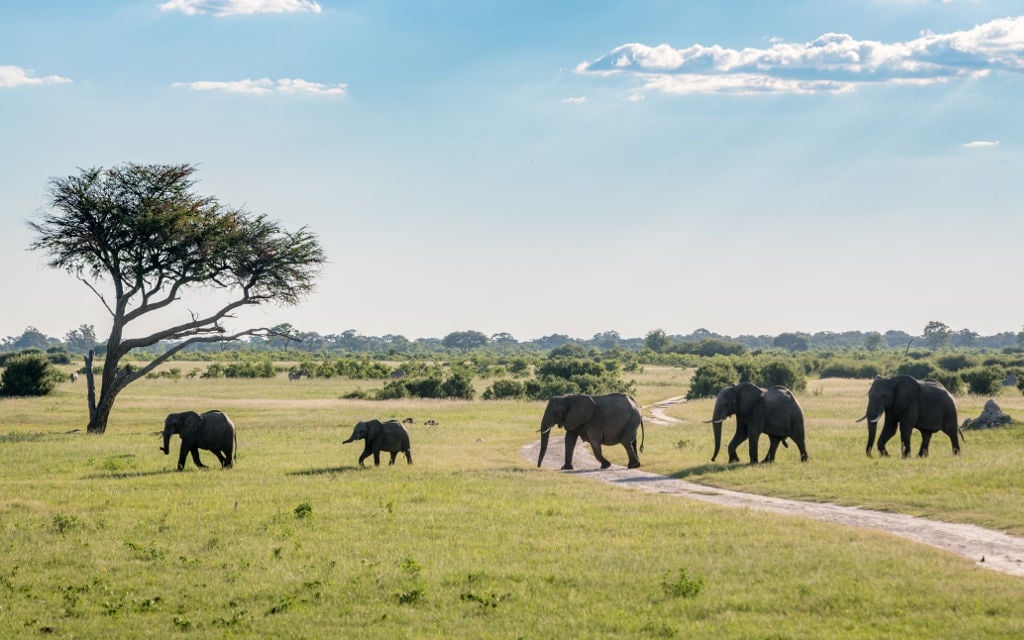
Zimbabwe's government has announced that mining on areas held by National Parks is banned with immediate effect.
In a statement issued on Tuesday evening after the weekly Cabinet meeting, an announcement by Minister of Information Monica Mutsvangwa said: "Mining on areas held by National Parks is banned with immediate effect. Steps are being undertaken to immediately cancel all mining titles held in National Parks."
This follows a public outcry and the threat of a court battle after President Emmerson Mnangagwa's government granted exploratory rights for coal to two Chinese companies in one of the country's iconic nature reserves, Hwange National Park.
Zimbabwe had granted two Chinese companies, namely Afrochine Energy and the Zimbabwe Zhongxin Coal Mining Group, concessions inside a national park and safari areas.
One of the concessions incorporated two dams, Deteema Dam and Masuma Dam, placing animals' already strained ability to access water under additional threat.
In a statement, Bhejane Trust, which works with Zimbabwe’s National Parks and Wildlife Management Authority on conservation in the Hwange area, said the two companies had Special Grants which could only be issued by the president.
The Zimbabwe Environmental Law Association (Zela) and Fedelis Chima, a Hwange local resident, on Sunday filed an urgent chamber application at the high court.
The court application said the Special Grant violated the country’s laws because it was permitted without first consulting the Ministry of Environment, Climate Change, Tourism, and Hospitality, where an environmental impact assessment certificate is issued.
"The issuance of the Special Grant in February 2019 before environmental impact assessment is in violation of section 97 of the Environmental Management Act," Zela and Chima argued.
"Authorisation of, and commencement of, mining in a protected national park is in breach of the constitutional duty on all respondents to prevent ecological degradation and promote conservation in terms of section 73(b) of the constitution of Zimbabwe," reads the application.
The Association for Tourism Hwange has also issued a statement appealing to President Mnangagwa to "cancel all Special Grants that are within Hwange National Park and all of the National Parks of Zimbabwe."
"As our President, save our tourism industry and preserve the livelihoods of millions of people within Zimbabwe and around the world. Hwange National Park, the wildlife and cultural shrines it contains is our heritage and a legacy to be left for our children and their children," reads the statement.
For its part, the Zimbabwe government said it had taken "note of the ongoing discussions around the Hwange National Park and we assure the Nation that Government [would] pronounce itself in the next few days.”
Ambitious plan
For the Zimbabwe government, the new coal mines dovetailed with an ambitious plan to be an energy exporter by 2023.
The southern African country said it had in its pipeline power projects of more than 5 000MW.
Afrochine Energy, which is the local unit of Chinese company Tsingshan, was expected to produce 100MW, while Zimbabwe Zhongxin Electrical Energy was expected to contribute 430MW.
According to the Worldometer website, Zimbabwe holds 553 million tons (MMst) of proven coal reserves as of 2016, ranking it 38th in the world.
Zimbabwe has proven reserves equivalent to 163.3 times its annual consumption. This means it has about 163 years of coal left, at current consumption levels and excluding unproven reserves.
* This article was updated at 21:00 on Tuesday 8 September to reflect that the concessions were cancelled.